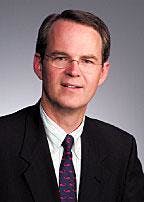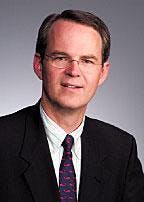Members have restructured the Houston-based International Association of Geophysical Contractors and shifted its focus in an attempt to improve the profitability of what they describe as a financially threatened industry.
"As an industry collectively, we have lost money each of the last 6 years," said Gordon C. "Chip" Gill, who was hired as full-time president of IAGC last September.
Because of that financial downturn, the number of seismic contractors has declined. "In 2000, there were five major international full-service seismic contractors. Assuming the Veritas-PGS merger goes through, there are about to be three," said Gill. "That in itself should be a wake-up call."
Petroleum Geo-Services ASA (PGS), Oslo, and Veritas DGC Inc., Houston, agreed late last year to merge in a $772 million stock deal that will create the world's second-largest geophysical services company. That transaction is to be completed within this quarter (OGJ Online, Nov. 27, 2001).
Gill sees three basic roles for a trade association such as IAGC. "The first is advocacy on government issues. The second is [development of] standards and best practices. And the third is commercial interests," said Gill. "We've historically done a good job in standards and best practices. On the government relations side, we've also done a pretty good job. That's where a lot of our big victories have come on behalf of the industry."
However, he said, "The one area we have not done much of anything is the commercial area."
New program
That has changed with a new IAGC program to communicate to the rest of the oil and gas industry the poor financial condition of the geophysical sector. IAGC officials want to meet with oil company executives "to review the factors that led us here, remind them of the value that we bring [to a job], and offer some suggestions for the path forward and what we can all do about this."
IAGC also is developing statements of principles that represent "a consensus industry view" of how to address the most contentious aspects of geophysical contracts. Drafts of those principles are to be published on IAGC's web site this month.
Industry surveys and analysts point to 3D seismic as one of the most valuable and cost-reducing technologies for oil and gas exploration and development in recent years, Gill noted. "One recent study attributed to seismic 46% of all reductions in costs by new technology," he said. "The geophysical industry adds tremendous value to the overall E&P effort."
Gill said, "Everybody in the E&P industry should be interested in [maintaining] a healthy geophysical industry." Yet, he said, "We found in visits with our clients that they either are not aware that our financial performance has been so poor or else don't believe it."
Restructured
IAGC completed its restructuring at its annual meeting in late March. "Essentially we have aligned IAGC squarely on top of the core businesses in the geophysical industry-seismic data acquisitions, multiclient or nonexclusive data libraries, and data processing," Gill said. "We have clarified who we represent, and we have restructured IAGC in a way that allows us to focus on those things of greatest value to the geophysical industry, particularly those core businesses."
That was necessary, he said, "because IAGC was at a crossroads and needed to go in a different direction. When I came in as the second president in IAGC's 30-year history, I was given the challenge of taking a look at IAGC from top to bottom and [applying] my knowledge of trade organizations and how they work."
Gill's first step was a "listening tour" of geophysical executives. "One of the clear messages, at least from the larger contractors," he said, was that they might not continue their IAGC membership without "some pretty significant changes" in its operations.
Gill said company executives called for more emphasis on commercial issues. "This is one of the key areas, if not the key area, that needed to change. It was the driver for changing IAGC," he said.
Aggressive clients
"Our clients have consolidated, and along with that consolidation goes a concentration of purchasing power. And they are leveraging that purchasing power very aggressively," said Gill. "One of the ways that has manifested itself is in pushing us to accept more and more of the risks" with "no consideration for the value that (geophysical data) represent."
Moreover, he said, "There are other aspects of some of these procurement processes that I'm not going to go into, which I think border on the unethical." Until now, Gill said, "The geophysical industry has not responded to that as well as we could have, should have. I have heard hair-raising stories of the unreasonable extent to which we are pushed by our clients at times."
He cites "one or more supermajors" that are inviting contractors to participate in global, long-term procurement contracts "with no guarantees of any work at all. But only those who are under contract will have a chance for work for a period of years."
Those contracts also force the contractor to bear all liability-"not just for its own equipment and personnel but for the client's equipment and personnel, for reservoir damage, environmental damage, for third-party damage, everything under the sun"-when entering exclusion zones, even at the insistence of the client, said Gill.
Such risk is "far beyond the economic value of a contract like that. It's a company-buster if the worst happens," he said. "So we're faced with the choice: Either take something like that and take the chance, or don't take it and be frozen out of work with one of the largest explorers in the world. That's excessively leveraging concentrated purchasing power."
Other oil field service contractors in recent years also have complained about being pressured by exploration and production companies to take more risks for less reward in a predominantly buyers' market.
"There are some trends out there that are biting all of us," Gill acknowledged. "There's a finite bucket of money that is spread around, and everybody is fighting for their share of that. We're going to fight for our share in a different way than we have in the past."
Career highlights
A native of the Washington, DC, area, Gordon C. "Chip" Gill became president of the International Association of Geophysical Contractors in Houston in September 2001, only the second person ever to hold that position.
Employment
- Joined Atlantic Richfield Co. as a landman in 1979 and spent 10 years working land issues in the Appalachian Overthrust, South Texas, and West Texas regions.
- Named manager of ARCO's government relations effort in the southeastern US in 1989.
- When ARCO formed Vastar Resources Inc. in 1993, Gill joined the Vastar management team to help set up and manage its government relations efforts.
- Joined the Independent Petroleum Association of America in 2000 as vice-president of membership and strategic planning.
Education
- Graduated from the University of Texas at Austin, 1979, with a BBA, specializing in petroleum land management.



